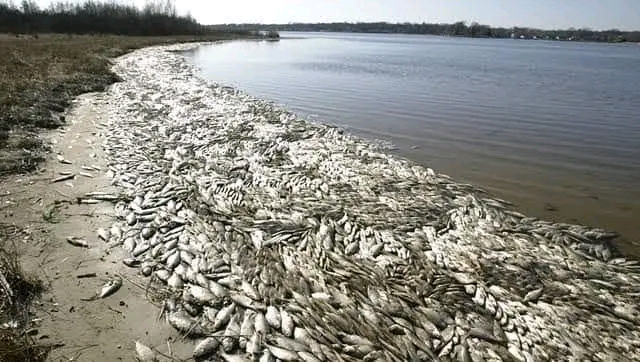Nigeria’s Niger Delta: A Menace of Crude Oil Spillage Endangers Lives, Environment, and Economy

Located in the southern part of Nigeria, the Niger Delta region, known as the hub of the nation’s oil production, is facing an ongoing environmental catastrophe – crude oil spillage. Stretching over 70,000 square kilometers, the area rich in natural resources has become a breeding ground for tragedy. This feature news story highlights the menace of crude oil spillage in the Niger Delta region, exploring its devastating impact on both human lives and the delicate ecosystem, while also shedding light on efforts to mitigate this dire situation that has plagued the region for decades.
The Plight of the Niger Delta Communities:
For decades, the Niger Delta’s communities have suffered the direct consequences of rampant crude oil spillage. Homes, farms, and fishing grounds have been destroyed, as oil contaminates rivers, creeks, and swamps, polluting the primary sources of livelihood for millions. Fishermen struggle to catch fish due to the oil slicks, while farmers witness their crops wither under the toxic soils. These communities feel the brunt of the ecological and economic devastation, leading to rising poverty rates and exacerbating existing social tensions.
Environmental Impact and Ecosystem Degradation:
The Niger Delta’s rich biodiversity, with its extensive mangrove forests, serves as a crucial ecosystem globally. However, crude oil spillage is pushing this delicate ecosystem to the brink of extinction. The oil coats the roots of mangroves, suffocating them and causing extensive damage to the entire food chain. Wildlife, including rare marine species, are directly affected, leading to a decline in their populations. The long-term repercussions of this ecological degradation extend far beyond the Niger Delta, impacting global biodiversity.
Health Hazards and Social Consequences:
Crude oil spillage has unleashed a host of health hazards on the local population. The toxic elements present in the oil release harmful pollutants into the air, resulting in respiratory problems, skin diseases, and other health complications. Additionally, contaminated water sources increase the prevalence of waterborne diseases, further straining already inadequate healthcare infrastructure. The social consequences are equally alarming, with increased crime rates, youth unemployment, and a sense of despair plaguing the communities.
Addressing Spillage: Government and Stakeholder Efforts:
Recognizing the gravity of the situation and the urgent need for action, the Nigerian government has taken steps to curb oil spillage in the Niger Delta. Regulatory agencies have been implementing stricter guidelines for oil companies, including regular inspections, improved maintenance, and increased penalties for non-compliance. Collaboration with international organizations and partnering with oil industry stakeholders has also played a crucial role in tackling the menace head-on.
The Way Forward: Balancing Economic Growth and Environmental Protection:
Efforts to resolve the crisis should not only focus on short-term solutions but also address the underlying issues that contribute to oil spills. Environmental experts argue for a comprehensive approach that includes transparent corporate practices, efficient pipeline maintenance, and investing in alternative sources of energy to reduce dependency on crude oil. Furthermore, empowering local communities through education, job creation, and sustainable economic alternatives is vital to ensure the long-term well-being of the Niger Delta and its inhabitants.
The Niger Delta’s ongoing battle with crude oil spillage represents a devastating menace that threatens lives, the environment, and the economy. The suffering of its communities and the decline of its once-flourishing ecosystem demand immediate attention. While steps have been taken, a collective effort, involving the government, stakeholders, and the international community, is critical to address the root causes of oil spills and set the Niger Delta on a path towards environmental restoration, economic growth, and social progress.




